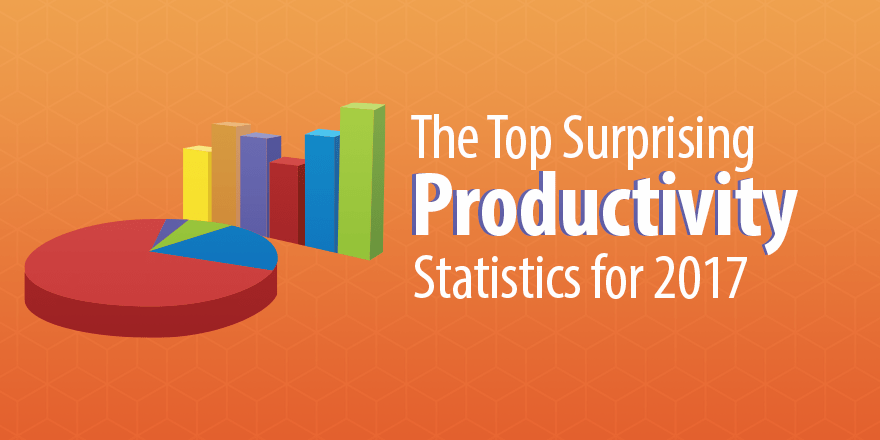If you’re anything like me, you obsess over productivity.
Whether you’ve invested in learning a specific productivity method, scroll through Inc. like it’s your job, or you’re constantly looking for the best new innovations in task tools and project management software, efficiency puts you at ease.
Despite your passion, though, you could be approaching productivity all wrong.
The science of productivity is an amorphous field, filled with university-level research and speculation. One only needs to skim through sites such as Lifehacker and Dumb Little Man to realize just how prolific content covering productivity has gotten.

Productivity statistics
To avoid all the hype surrounding this industry, I’ve gone through the latest research to find interesting, applicable, and sometimes shocking productivity statistics.
Test any of these methods out? Find any of them surprising? Be sure to let us know about your own efficiency hacks in the comments at the end of the article.
1. American workers estimate that their own personal productivity is 11 percentage points higher than the average American worker. (Source: Qualtrics)
2. 75% of American workers don’t believe they have access to the latest efficiency-boosting technology. (Source: Staples)
3. Employees who believe their workplace effectively uses mobile tech are more creative, satisfied, and productive at work. (Source: The Economist Intelligence Unit
4. Creative tasks that generate an emotional response encourage novel thinking and work dedication. (Source: Frontiers in Psychology)
5. Employees who spend 60% to 80% of their time working remotely are likely to have the highest workplace engagement. (Source: Gallup)
6. 22% of American’s are concerned about losing their jobs because they believe their industry is shrinking. (Source: Pew)
Recommended for You
Webcast, August 1st: SEO: How to Outrank Your Competitors on Google (Our Step-by-Step Process)
7. Employee retention will increase 10% by 2020 in organizations that have a “choose your own work style” culture. (Source: Gartner)
8. Stress over business changes lowers the average employee’s performance 5%. (Source: CEB)
9. About 30% of employees are so stressed about finances that it interrupts their focus and productivity. (Source: Bank of America)
10. The United States’s economy loses about $411 billion a year due to sleep loss. (Source: RAND Corporation)
11. One study found that moving to a green building improves decision-making performance by 8%. (Source: Environmental Health Perspectives)
12. Kaizen, a lean project management method, has been shown to improve employee well-being and social satisfaction. (Source: Human Relations)
13. Employees and employers agree that stress is the biggest health concern in the workplace, but they disagree on why. (Source: Willis Towers Watson)
14. When workers are happy, they’re more likely to perceive that their coworkers are more productive. (Source: The Center for Generational Kinetics)
15. Pets in the workplace improve employee morale, productivity, and personal workplace satisfaction. (Source: Banfield)
Are we missing key productivity statistics?
There’s no way that we’ve encompassed all productivity statistics here, seeing as productivity ranges from office productivity, psychology, team dynamics, and overall happiness. I’m sure that there are plenty of statistics that belong here that didn’t make the list.
Which productivity statistics do you think should have been covered here? Were there any statistics that were surprising to you? (I was, personally, surprised about how much having pets in the office helps productivity and happiness!)
I’d love to hear all of your reactions in the comments.
